As usual, whenever new research on breastfeeding or breast milk comes out, the media laps it up, especially when the findings seem to suggest that breastfeeding has no effect. When that happens, you get a run of articles that focus on how formula is just as good as breastfeeding and how the effects that have been found are due to confounding factors like socio-economic status (‘SES’; high SES families are more likely to breastfeed in Western countries).
And so it goes again.
New research out of the University of London is claiming that breastfeeding does not impact IQ
The authors of this piece argue that the previous studies that have found effects were unable to employ “strong research designs”, something they seem to believe they have overcome. Now, the article is in press which means I don’t have access to what the authors have actually written, but what is available is the correlation matrix used from the dataset as it was public. I thought I would take a look to try and see what kind of great research design these authors have and how much weight we can give this new study. Let’s see what we have here…
What is the current research design?
The researchers utilized data from the Twins Early Development Study which you can read up on here. On the surface, this is exciting because if we have twins who have discordant feeding methods, this could say a lot. Unfortunately, that’s not what we have. According to the TEDS dataset that was shared publicly, one random twin was selected for the analyses, likely because discordant feeding methods are highly unlikely with twins. The sample is large (N = 5800), but I have no information on demographic breakdowns such as sex, SES, etc.
The pros of what we have here is a large, public dataset which I assume is what the authors believe constitutes the “strong research design”. However, this on its own doesn’t actually make the research design “strong” and unfortunately there are other factors that make this design not quite so strong. Primarily, the biggest issue is how the variables were coded, something I will discuss further below, but suffice it to say, if your variables don’t provide you with the type of information you need (i.e., they aren’t well-defined), it doesn’t matter how large your sample is or what analyses you run, the research isn’t “strong”.
OK, but what did the researchers look at and what did they find?
The focus seemed to be on how well breastfeeding related to IQ measured at various time points. Data on IQ has been collected started when the children in this study were 2 with the final measurement with children at age 16. In terms of comprehensiveness, this is great for IQ. SES and sex were included in the correlation matrix and thus were likely controlled for in terms of any other analysis in the main piece (again, I can’t know because of the paper itself is in press and not available to read).
SES was correlated with IQ, with the relationship gaining strength with age, which matters if breastfeeding is linked to SES, which of course it is (with SES accounting for approximately 10% of the variability in breastfeeding). Breastfeeding was barely correlated with IQ, but as with SES, the bivariate relationship (i.e., the relationship between breastfeeding and IQ, without controlling for any other factors) increased in strength with age as well. That is, the relationship with IQ at age 16 was r=.18 (a small effect), but was only r=.05 at age 2. Now, the authors report in the press that there was actually a significant effect for girls at age 2, meaning their analyses were far more complete than what we have here in the public data file, but without more information on what they included and ran in terms of analyses, I can’t comment further.
Can we get back to the variable problem?
Sorry, yes, let’s discuss. As I have spoken of time and time again, although a large focus is given to the possible effects of confounding when looking at breastfeeding research, there is virtually no discussion of the fact that breastfeeding is often assessed as a binary variable with little consideration of the fact that it is very much a continuum. On one end, we have women who have never breastfed and on the other end, we have women who have exclusively breastfed for six (or so) months and then continued breastfeeding until their child was at least two years old (or self-weaned). Of course, there is also everything in between in which we have exclusive for shorter periods, all mixed, mixed at different percentages, and so on.
The latter end (exclusive for ~ 6 months and continued breastfeeding with solids until the child is ~ 2 years) is what we call biological or evolutionary breastfeeding. This is actually the biological norm for human beings and is what we ought to be making comparisons on. When breastfeeding is treated as a dichotomy (i.e., ever breastfed vs. not breastfed), this wide variability isn’t taken into account. The variable “breastfeeding” is essentially meaningless unless we have a pre-existing belief that there is something so amazing, so unique, and so powerful about breastfeeding that even one breastfeed is enough to change a person’s life course. But of course we know that’s not how breastfeeding works and so to hold it to such a ridiculous standard is setting it up to fail. As a friend put it, “It’s like saying, ‘I exercised that one time in 1957, and I’m still fat. Exercise has no impact on weight and fitness!’”
With all the talk on breastfeeding being best and all the benefits, it does seem like that is the message being shared though.
Sadly it seems there are efforts to try and make breastfeeding seem that way. I have seen numerous people tell mothers that “every feed makes a difference” and that even just a week of breastfeeding is something in terms of various health and well-being outcomes. The problem is that the evidence doesn’t actually tell us this and formula apologists will jump on this rhetoric and then use findings like the one herein to throw out all findings on breastfeeding. They ignore the nuances and the variability and the very, very important fact that when breastfeeding is examined in a biological or evolutionary way, the effects become more pronounced over more outcomes.
This doesn’t mean we don’t celebrate the feeds a mother has, but we need to do it for different reasons. Primarily, you celebrate what she achieved because she wanted to achieve it and not because it will miraculously result in her child being more intelligent/healthier/slimmer/and so on. It’s not only okay, but essential, we help women celebrate their breastfeeding victories without added rhetoric. Support for what she achieved does not have to mean that we put breast milk up on a pedestal that research doesn’t support. When we do that, we actually end up playing into the hands of those who thrive on trying to dismiss the need for breastfeeding support and assistance because the research doesn’t support the “magical elixir” view of breast milk. In short: Celebrate your feeds because you had them and wanted them. That’s enough.
If breast milk isn’t a “magical elixir”, how should we view it?
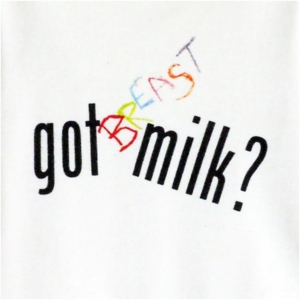 We need to get back to viewing breastfeeding in the biological manner it’s supposed to occur. Then we compare outcomes based on that biologically normal perspective. This means that each piece of research needs to include information on exclusivity and duration to allow us to create a “biological normative” group and then deviations from this normative group to determine the real effects of changes to how we feed our infants and the long-term impact of not breastfeeding in a biologically normative way.
We need to get back to viewing breastfeeding in the biological manner it’s supposed to occur. Then we compare outcomes based on that biologically normal perspective. This means that each piece of research needs to include information on exclusivity and duration to allow us to create a “biological normative” group and then deviations from this normative group to determine the real effects of changes to how we feed our infants and the long-term impact of not breastfeeding in a biologically normative way.
As I previously mentioned, I have covered this topic elsewhere, but it’s worth mentioning that when we do include these types of comparisons (and in fact, we haven’t even seen a real “biologically normative” group in any research, but have seen at least comparisons of exclusivity or duration), the results support the notion that we are increasing the risks of various negative outcomes for our children and ourselves by not breastfeeding in this normative manner. Some of the outcomes include cancer risk, obesity, and respiratory tract infections, to name a few.
Perhaps more importantly, we need to view the effects of not breastfeeding in a biological or evolutionary manner as dynamic and not static. They will interact with environment, exposures, history, and so on to increase or decrease the risks for various outcomes. Not only that, but nowhere should people view breastfeeding as the only variable that influences outcomes because that simply isn’t the case. Breastfeeding is one variable, and may be rather important depending on the outcome, but it will still be influenced by other factors.
This means that can’t expect or look for a singular effect on everyone nor should we view the associated increased risks as being indicative of a life-sentence of something horrible. Increased risk is simply that: An increased risk. We all take risks in our lives and even in our parenting and we do so by weighing the benefits and risks of each scenario, infant feeding being no different. The part that is often missing, however, is that to weight these risks and benefits, people need accurate information which they currently don’t really have when we don’t have the biological norm included as something to consider.
Okay, so that’s it?
Well, one more thing. I don’t know what measure these authors used to assess intelligence (and I actually went through and read other articles based on this twin dataset, but it seems different measures are used at different ages and I’m not sure which ones are included in the current analysis), but the study of intelligence and IQ is difficult at the best of times. There is widespread controversy over how we assess intelligence, especially standardized measures, as the measure itself seems to be less about fluid intelligence (which should be unrelated to schooling) and more about fixed intelligence (things like facts and stuff learned in school). This is why much of the research on IQ has always found a large relationship to schooling and SES, exactly the type of relationship the authors herein also found. Thus, the idea that these variables are more important to certain measures of intelligence is absolutely a factor that needs to be considered, but may be less reflective of the authors’ conclusions about breastfeeding and more reflective of the nature of “general intelligence”.
No more?
Not at this time. Though once the actual paper is out, perhaps there will be more to add!
UPDATE!!
The paper is out and yes, the authors did not examine anything other than breastfed or not. Furthermore, there is reason to believe that most of the families did not breastfeed for long as the researchers had access to (but did not use) duration of breastfeeding, but it was assessed in DAYS. Yes folks, days. Not weeks or months. Furthermore, the assessments of IQ are far from ideal in that early measures were parent-report assessments and even later ones were done over the phone or with packages sent to the family, meaning no person was properly administering them or overseeing their completion. However, other research has suggested that the methods used in the TEDS database are valid proxies for IQ.
Very interestingly, in their discussion, the researchers don’t even acknowledge that their assessment of breastfeeding is problematic. They don’t provide information on the average duration of breastfeeding and simply assume their measure of breastfeeding is appropriate for the question at hand. I admit this lack of even acknowledging the issue when we know it’s an issue today makes me question the ethics and integrity of the researchers themselves.
______________________
[1] von Stumm S, et al. Breastfeeding and IQ growth from toddlerhood through adolescence. PloS One, in press. [2] Horta BL, Victora CG. Long-term effects of breastfeeding: a systematic review. World Health Organization 2013. [3] Victora CG, Horta BL, Loret de Mola C, Quevedo L, Pinheiro RT, et al. Association between breastfeeding and intelligence, educational attainment, and income at 30 years of age: a prospective birth cohort study from Brazil. The Lancet Global Health 2015; 3: e199-e205.
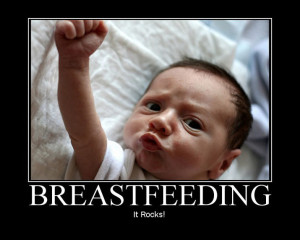
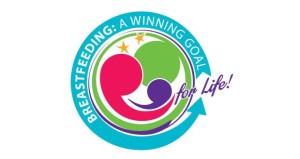

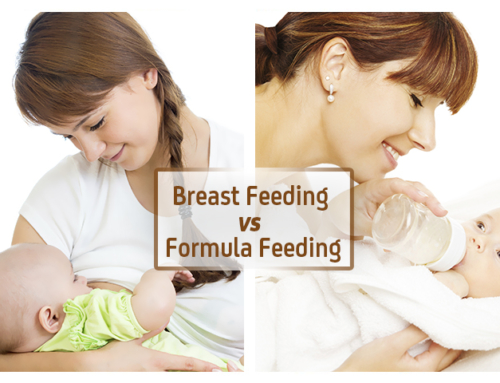

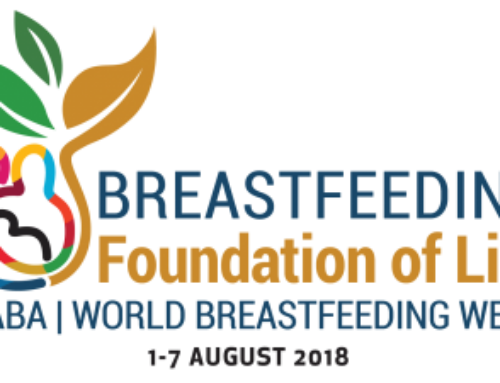
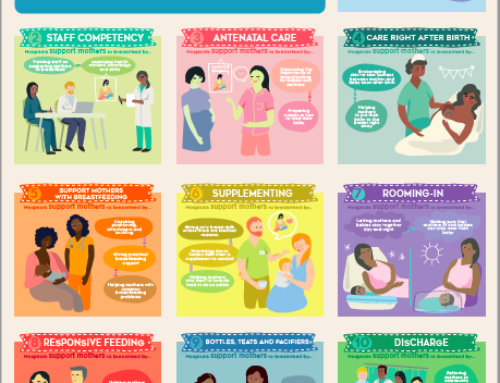
[…] Bron: Breastfeeding and IQ: No, Breast Milk Is Not a Magical Elixir (But It’s Still Amazing!) | Evol… […]
Have you seen this article? http://time.com/4072969/breast-milk/?utm_source=7871
I’d be interested in your analysis of the research.
That’s from “Dr Amy” Tuteur – she is essentially a professional troll who attacks all things natural (breastfeeding, natural birth, home birth, breastfeeding, intactivism, etc.). She likes to stir the pot, and has a group of followers who infiltrate natural birthing circles and calls CPS on women who home birth.
The bottom line is you all have no idea at all what breastfeeding does. For 100s of thousands of years this is what human babies required and the milk evolved during that time to meet specific needs of the human baby. And it’s probably what helped out brain grow to the large size it is. Formula is not breast milk and it never will be. You can’t replicate something evolution/biology created. Breastfeeding is so much more than people realize its Mothers smell, intimacy, a feeling of well being, comfort, bonding with the mother, a way of making a baby thrive, it’s the way it’s suppose to be. It’s not the same with formula you don’t get all that. Formula fed babies are missing out.
If it’s evolution then it’s made to enhance the species…we evolve and we get better, we get smarter and ground zero was/is breastmilk. I do believe it enhances cognitive function the longer it goes on. Happy secure babies who are close with the mother and feel loved do better. And extended breastfeeding makes babies/toddlers feel loved. Breastfeeding provides something no bottle can ever do. With the bottle their’s a disconnect. It’s a myriad of benefits in synchronization that work together like a symphony.
It’s not natural for a baby to be away from its mother drinking from a plastic bottle some manufactured concoction. We are animals first. That is what modern society has changed. It’s taken something away from babies. I don’t need research to know it either.
[…] New headlines suggest that there is no link between breastfeeding and IQ, but a closer look at the research suggests this isn’t what can be said. Breastfeeding and IQ: No, Breast Milk Is Not a Magical Elixir (But It’s Still Amazing!) | Evol… […]
I’ve been looking into this article for a psychology assignment, and I thought it was a great example of how the definition of the variables influences the outcome of the research. Unbelievable that breastfeeding didn’t seem to be defined with any other than yes/no.
However, when I looked up the paper here: http://journals.plos.org/plosone/article?id=10.1371/journal.pone.0138676
I found that when I scrolled down a bit, to the header Descriptive Statistics, 62% of the children in the analysis were breastfed with an average duration of almost 4 months. So apparently some more questions must have been asked than just yes/no and ‘how many days’? It doesn’t say anything about the exclusivity of breastfeeding though. Wondering what else went wrong in the design that with an average duration of 4 months there were no significant differences in IQ.
They can definitely get months from number of days. As you can read in the methodology:
“Breastfeeding.
At first contact when the twins were on average 18 months old, mothers were asked a whether they had breastfed their twins (yes/ no). The question was asked including both twins and not for each twin separately. Mothers also reported how long they had breastfed each twin in days. The correlation of breastfeeding duration across twins was .97.”
But the assessment issue still matters because it’s like you have disparate subgroups. The average age includes those who breastfed for 1 week and those beyond 4 months and treats them the same. Would you expect findings for those who breastfed so little? Probably not. And those people will mask any significant findings for the others. This is why the use of ever breastfed fails to provide the right information for any analysis except thinking breast milk is magical 🙂
[…] Bron: Breastfeeding and IQ: No, Breast Milk Is Not a Magical Elixir (But It’s Still Amazing!) | Evol… […]
[…] Dit past er dan wel weer bij: Soms gebeuren er dingen in je leven die het vertrouwen in vrienden heel erg schaden. Soms………. | Natuurfreak Hoe is dat nou, 4 kinderen? Hoe is dat nou, 4 kinderen? – Hip & Hot – blogazine Ik ben zelf niet zo van de challenges, maar deze was toch wel leuk. Leuk recept en een mooi idee erachter, ook al waren de gebruikte restjes een beetje kunstmatig: Gehaktballetjes ‘American Style’ #foodchallenge #nofoodwaste | Cuberdon & Macaron Oeps nog geen borstvoeding, dan deze nog maar eens, die past mooi bij de titelfoto: Effidensbeest: New headlines suggest that there is no link between breastfeeding and IQ, but a closer look at the research suggests this isn’t what can be said. Breastfeeding and IQ: No, Breast Milk Is Not a Magical Elixir (But It’s Still Amazing!) | Evol… […]